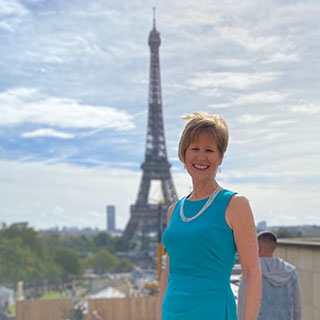YEP Grant Recipient: CHADS Coalition for Mental Health
When Marian and Larry McCord’s teenage son, Chad, took his life in 2004, they mourned his passing but also worried about the next family to experience “a living hell,” says Marian. “Actually, at first, I wanted to crawl into a hole and never come out, but eventually I realized that the things I’d learned through all of it had the potential to help someone else.”
Mostly what McCord learned, she says, was how ill-prepared she was and how thin the system is stretched. “I was a pediatric nurse with some experience in the behavioral health unit, but when mental illness knocked on our door, I was at a loss.” After several diagnoses, 17 different medications, counseling, inpatient treatment and six previously unsuccessful suicide attempts, Chad lost his battle at age 18 and “left this world before fulfilling his dream to increase awareness and acceptance of mental illness,” she says. “He once said that ‘when he was better’ he wanted to stand in front of others and talk about his depression, without shame or embarrassment. This agency really is his vision, as well.”
A year after Chad’s death, the CHADS Coalition for Mental Health was formed and today offers a wraparound model of evidence-based programming in suicide prevention, family support and social-emotional learning. For the past two years, CHADS has been a recipient of YouthBridge’s YEP (Youth Engaged in Philanthropy) STL! grant.
Through CHADS’ Signs of Suicide® (SOS) Prevention Program, trained facilitators guide students, parents and community members in discussions about the signs of depression and suicide, and the importance of telling a trusted adult when they notice those warning signs. The student training sessions take place in schools or virtually, “meeting students where they are,” says McCord, and are offered for students, grades 5th through 12th.
“Mood disorders and ideations of suicide can emerge early in adolescence – we found out that Chad had been thinking about taking his life since the third grade – so it’s important to deliver these messages as early as possible,” she says. At the end of each session, participants are guided through a self-screening and given the opportunity to ask to speak with a counselor. “About 12-15% of students will self identify as needing to speak with a counselor about themselves or someone they know.”
The Family Support program is multi-layered, providing targeted, short-term counseling to children and adolescents, both in-school and at CHADS’ South County location, support groups and suicide risk assessment training for educators and school counselors. School-based counseling with embedded clinicians (offered free-of charge) is the ideal, says McCord, and an area where she’d like to see more growth. “When you think about a school counselor, they may or may not be a clinical therapist and will often have 500-1,000 kids to keep track of, so a student can easily slip through the cracks.” Last year, CHADS was able to identify a potential “suicide cluster” at a school and figure out a plan of action, “because we were there,” she says.
The third arm of programming, Social-Emotional Mentoring, matches students with trained CHADS mentors for weekly 30-minute sessions on self-awareness, relationship skills, positive coping techniques and more. It’s in this area where CHADS has earmarked YouthBridge grant funding, says McCord. “We have to charge a fee for this service, so funding helps us to offset costs for those unable to pay full price,” she says, adding that the YouthBridge grant also has helped attract other funders to the program.
“We simply can’t keep up with the demand, which is an indication of how much our children are hurting and how badly we need to be out there with a message of hope,” says McCord.
September is Suicide Prevention and Awareness Month. Learn more about the warning signs and risk factors for suicide at www.chadscoalition.org.
